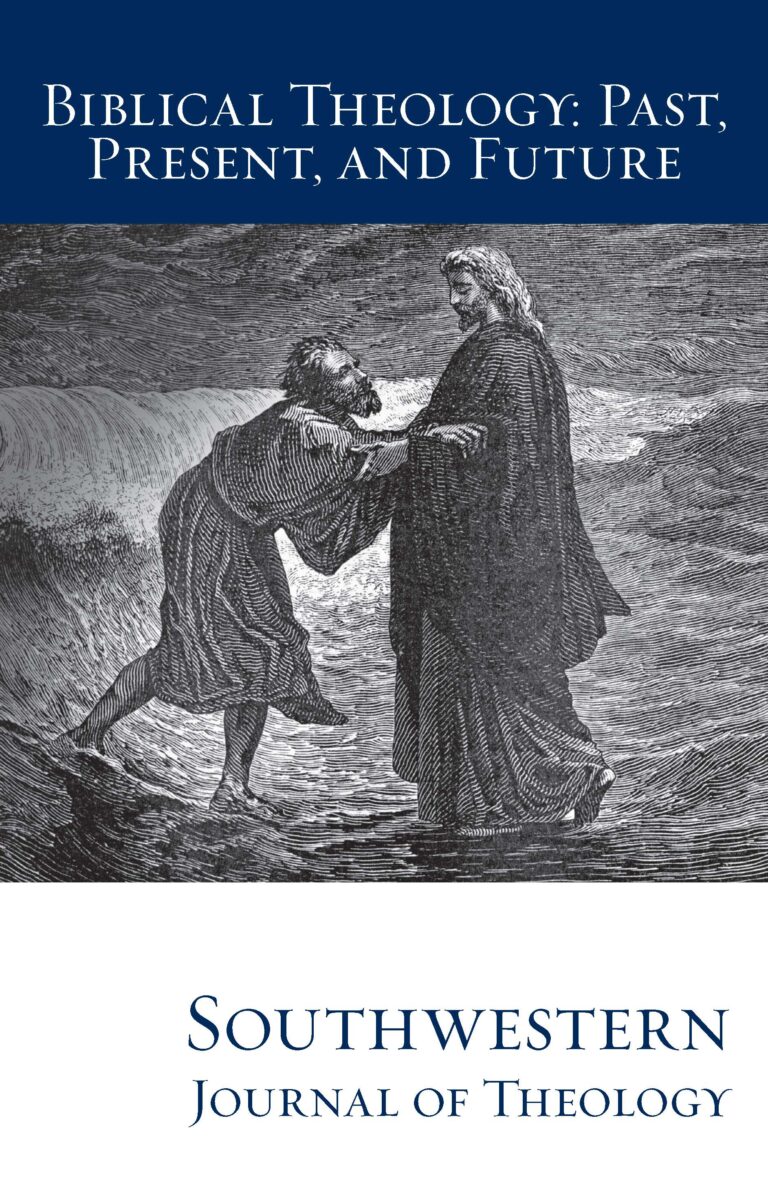
Biblical Theology: Past, Present, and Future (II)
Southwestern Journal of Theology
Volume 56, No. 1 – Fall 2013
Managing Editor: Terry L. Wilder
Exegetical Guide to the Greek New Testament. By Murray J. Harris. Nashville: B&H Academic, 2010. 272 pages. Softcover, $24.99.
Murray J. Harris is professor emeritus of New Testament Exegesis and Theology at Trinity Evangelical Divinity School. This book is the first of the EGGNT series, of which many more will be welcomed by scholars, pastors, and students alike.
Harris deals in only a few pages with the introductory matters. He considers Paul the author of both Colossians and Philemon, arguing briefly from the affinities between the two letters, especially Paul’s co-workers mentioned in each epistle. He writes, “If Paul authored Philemon, it seems a priori likely that he also wrote Colossians, given these remarkable similarities of circumstance” (3). He opts for a dating during Paul’s first Roman imprisonment for both letters (4, 207-209) and states that Paul wrote the letter to exhort them away from their relapse into paganism as well as to combat false teaching (5). Harris refers the reader to external sources for further reading on these matters.
The purpose of the series is to deal extensively with grammatical and syntactical issues, while briefly explaining the implications of such issues for theological interpretation. Harris’ interaction with the secondary literature is immense and his layout of various grammatical and syntactical options is superb. Each section begins with Harris’ custom block diagram, intended to explain the structure of the passage. Next comes Harris’ exegetical spadework, followed by a list of suggested further readings for topics that surface in text. Last, Harris provides homiletical suggestions in the form of a bare sermon outline. After the full text has been examined, a translation of each epistle is given in its entirety: first a literal translation, followed by an extended paraphrase.
Harris clearly states his exegetical decisions and theological conclusions throughout the book. This contrasts with a similar series, SIL International’s Exegetical Summaries series. SIL’s series focuses solely on grammatical and syntactical issues and explains the positions of a multitude of secondary literature, but the authors make no decisions themselves. They are neutral providers of information. Both series have their advantages, but Harris’ volume makes a greater contribution to scholarship since he makes arguments that may be evaluated and appropriated.
One way Harris could have improved the volume is to include more discussion of Pauline theology in exegetical decisions. While he does make references to passages elsewhere in the Pauline corpus, his discussions on passages involving words such as “body,” “flesh,” “rulers and powers,” “elementary spirits” (stoikei/on), etc., would have been enriched by a brief discussion involving a more comprehensive Pauline theology. The reader will only find recommended resources for further reading, and it seems unfortunate that Harris does not expand his discussions to include his knowledge of the field.
Harris’ work is the first of many eagerly awaited volumes that will aid the student and pastor in studying and preaching while also contributing to scholarly discussions on key passages where grammatical and syntactical issues are in dispute. Any serious student of Colossians and Philemon should own this volume.





